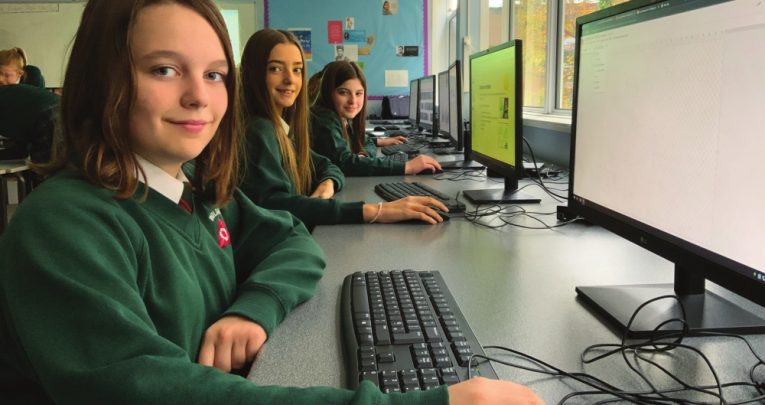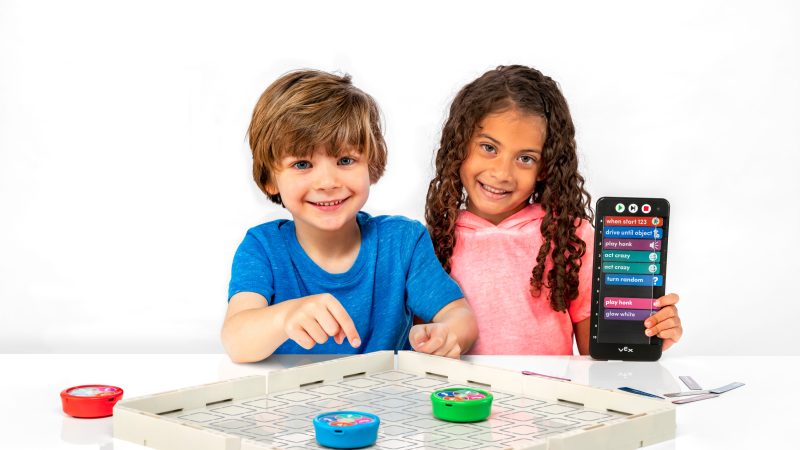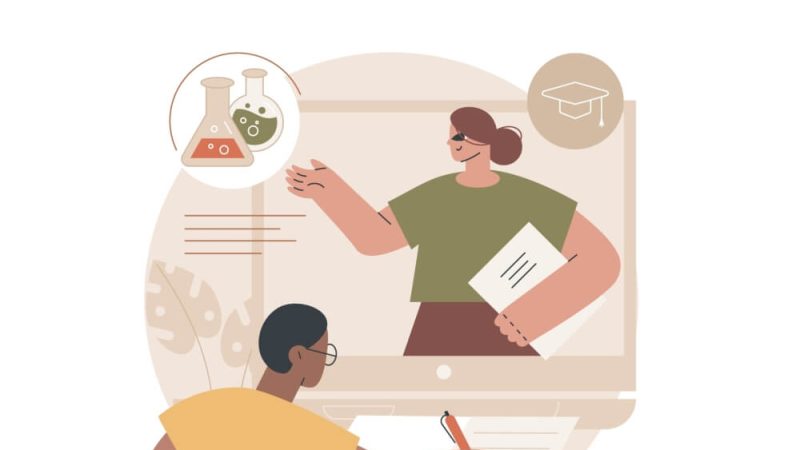Implementing Edtech – Why small steps can make the biggest difference

Using edtech effectively needn’t always call for a big investment – at least not if you have a team of staff and pupils willing to make incremental, but meaningful changes observe Matthew Knight and Kate Broadribb…

Back in 2005, the release of the first iPhone was still two years away, but a crystal-clear vision for edtech was already in place at Wildern School.
It centred on supporting staff to trial technology as part of small-scale research projects – an approach that became so successful, it achieved national recognition in 2010.
Developing edtech often involves investment, which suggests that being able to afford the right infrastructure is essential for successful change. But having now seen the success of Wildern’s school improvement group, we’ve seen how developing staff competence and confidence can yield more wide-reaching results and a greater impact on learners.
Getting on board
We recognised early on that there needed to be a twin approach – top down, as well as bottom up. Through our appraisal process, for example, all staff were asked to base one of their performance management targets around an aspect of edtech pedagogy.
This in turn enabled us to plan a programme of training events throughout the school year – during INSET, twilight sessions and bespoke meetings for small groups of staff – which we called ‘genius workshops’.
What the staff liked was how the menu of CPD events enabled them to select the training most relevant to them, personalising the process. Over the years, these workshops evolved to support people working at different levels – from beginners and those new to the school, through to intermediate and advanced participants who went on to become digital champions.
It soon became a self-sustaining model; our colleagues were supporting each other, reducing the need for external training. Our initial ‘small-scale projects’ approach has been maintained by the genius workshops and the school improvement group (now called the PLG – Personal Learning Group).
Ease of access
We’ve developed a library of digital resources by filming training sessions and creating screencast recordings, so that staff can access these materials anytime and anywhere.
Not everything is formally scheduled. Workshops are supported by a ‘genius bar’ where staff and students can go during the day and access the technology they need; it’s been a blessing these past two years when it comes to online and blended learning. Weekly ‘WiFi Wednesday’ emails share examples of using edtech successfully, ensuring staff have a platform from which to share their knowledge, and know who to approach for support.
Students take an active role too, with our Edtech Focus Group training teachers, as well as their peers, in the production of online video tutorials, and by delivering some of our whole-school twilights and genius sessions. Feedback from teachers has been overwhelmingly positive, and we’ve helped to set up similar groups elsewhere through our work as an edtech Demonstrator School.
We have a centrally-resourced student app hub that’s easy to use and update. It’s designed to encourage staff to give it a go, and enables students to retrieve resources they have been using in lessons across the curriculum. It’s also handy for remembering those apps that even the more tech- savvy among us can easily forget about during a busy half term.
Reaching out
Mental health and wellbeing is at the forefront of our pastoral offer for both students and staff at Wildern, and technology has a key role to play here too. The addition of a Wellbeing Hub to our school website provides quick access to external agencies, wellbeing resources, newsletters and support apps.
To make it easy for students to reach out, we’ve set up an #ineedsupport Google Form, so they can ask for help without having to physically speak to anyone – something that can otherwise be a barrier. Key staff receive a notification when a student uses the form, and are able to read the request and take action.
We also use Google Forms to help students submit their ideas for school improvement, and enable staff to nominate their ‘half-term heroes’ – all of whom are entered into a draw for an Amazon voucher. We even continued our regular staff quiz during lockdown via YouTube, using the chat function to catch up.
Trending
Sustained change
As we move forward into 2022 – and with luck, away from the COVID-reactive world we’ve been living in since March 2020 – we can return to a more strategic approach in all areas.
We have a team of six Digital Excellence Leaders (DEL) based in different departments around the school, and people to champion a variety of skills, applications and techniques. Their expertise is being used across our Trust and to support our Primary School Partners, so that pupils arrive at secondary with well-developed digital skills. Upon request, the DEL also provide free support for other schools via the DfE’s Edtech Demonstrator programme.
One thing the pandemic achieved was to push staff, students and parents well outside of their comfort zones and to try new things. As a Trust, we need to explore whether this is going to be a sustained change; behaviour that will persist beyond the still-fresh memories of lockdown and working from home.
Online parents’ evenings are fast becoming standard at many schools, but what about the software that kept us all functioning and connected? Are we still using Mote, Google Meets, Quizlets, Seneca? And how many of those Chromebooks and WiFi dongles are still being used? Do they get used for more than 50% of student contact time a week? 25%? 5%?
Did we succeed?
Small steps, both virtual and physical, are what’s needed. It doesn’t need to start with wholesale change or big investment in edtech, and it doesn’t matter what platform a school uses. If every department champions a different piece of software, app or website, students can have excellent access to tools that support learning and a more blended approach.
Our geography department, for example, has supported students in their revision success with digital mind mapping and flash cards, whilst our English department has championed the use of Kami to embed videos and instructions that scaffold learning.
Remember that not every member of staff has to be an expert on everything. Not every minute of every lesson needs to be online, but there are questions we should ask.
How much of our working week is spent using new technology? How did our own education support this? How can we make sure our students have what they need for the workplace – the basics of email skills, knowledge of cloud storage management, the ability to balance life and work in a world where we’re always able to connect?
Finding the answers to these questions supports the small steps needed on a continuing journey of edtech improvement.
Tech support
If you’re interested in what we do at Wildern and how we might support you with the successful implementation of edtech, contact us at edtech@wildern.org or sign up through the Edtech Demonstrator School programme via edtechdemo.ucst.uk
Kate Broadribb is a senior leader of learning, and Matthew Knight an assistant headteacher at Wildern School in Southampton; for more information, visit wildern.org or follow @wildernschool











